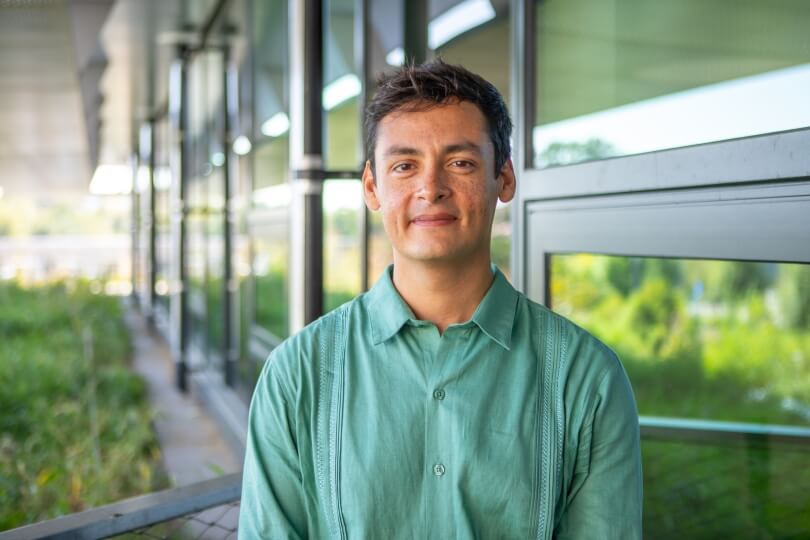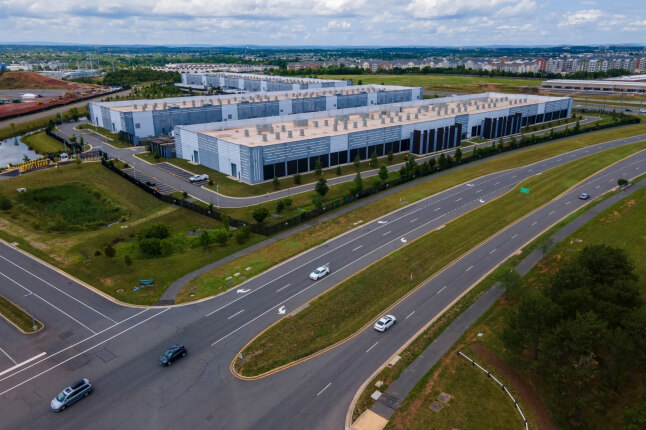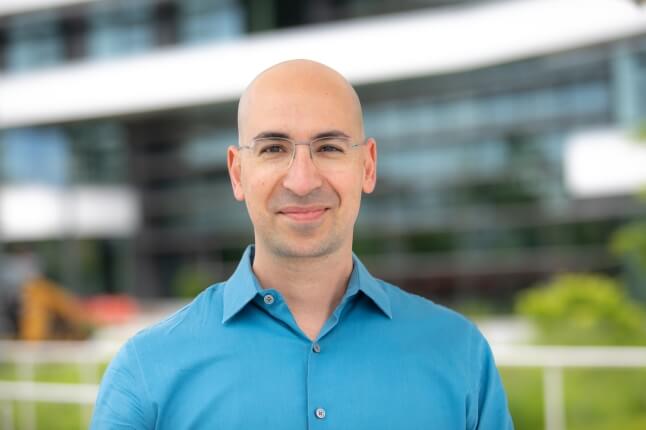News
Francisco Marmolejo-Cossío, a postdoctoral research in the David Parkes group (Eliza Grinnell/SEAS)
Francisco Marmolejo-Cossío was pursuing a Ph.D. in computer science at the University of Oxford when he first discovered Mechanism Design for Social Good (MD4SG). Co-founded by Rediet Abebe, A.B. '13, S.M. '16, MD4SG draws in researchers from all over the world to assess the needs of underserved communities, with a strong emphasis placed on the insights of those communities’ members.
“The core mission of MD4SG is to improve access to opportunity for historically underserved communities,” said Marmolejo-Cossío, A.B. '12. “This mission is achieved through interdisciplinary techniques such as computer science, algorithmic mechanism design, law, sociology and others, but it’s achieved through the actual stakeholders from these communities. I see it as a partnership.”
Marmolejo-Cossío is now a postdoctoral researcher in the EconCS Group of David Parkes, George F. Colony Professor of Computer Science and incoming Dean of the Harvard John A. Paulson School of Engineering and Applied Sciences. Since joining MD4SG, Marmolejo-Cossío has helped bring the group’s approach to communities in Latin America, including in his native Mexico. In 2022, he started the Summer of Science program, which connects Spanish-speaking MD4SG members with student researchers from Indigenous communities in Mexico. The teams work on projects that use design or computational perspectives to address challenges in the students’ communities, then present their posters at MD4SG’s flagship event, the ACM Conference on Equity and Access in Algorithms, Mechanisms, and Optimization (EAAMO).
“What’s always resonated with me is the express value MD4SG and EAAMO place on the contributions that people from impacted communities can have on the research process,” Marmolejo-Cossío said. “That gives validity to what’s actually happening on the ground, and it led me to work on this summer project to highlight the contributions of these students.”
The Summer of Science, a collaboration between MD4SG and the National Network of Councils and State Organizations of Science and Technology in Mexico, attracted eight Indigenous female students from one Mexican state in its first year and 20 female students representing 11 Indigenous communities and seven Mexican states this year. Most members of this year’s cohort are pursuing or in the process of admission to master’s degrees, along with several Ph.D. or postdoctoral researchers.
This year’s participants researched topics such as the perception and social participation in the environmental restoration programs of the basin of a lake in Mexico; Indigenous women and political representation in municipal government; the impact of violence on mental health for the Rarámuris women of the Sierra Tarahumara; development of a mobile application for the detection of the autism spectrum; communication barriers and challenges in health education about COVID-19 in Indigenous communities; and preserving oral traditions in written or audiovisual formats. “What we wanted was a summer research program where our researchers in MD4SG can collaborate on projects with these wonderful scholars from these communities,” Marmolejo-Cossío said. “It was a two-way exchange: we could teach them the technological limitations and possibilities of their proposals, while also learning from them the constraints they face in their communities.”
The SEAS Office of Diversity, Inclusion and Belonging, with the Committee on Ethnicity, Migration, Rights, will host a lunch for the Summer of Science participants on Nov. 2, which will feature a conversation with David Alvarez-Melis, Assistant Professor of Computer Science.
This has been one of the most meaningful projects I’ve ever been on. It’s been an eye-opening experience to get to know these students, to talk about the realities of their day-to-day lives, to learn about the innovations that take place within their communities.
Marmolejo-Cossío hopes to continue promoting Latinx representation in STEM as he applies for faculty positions in the coming months. His research in Parkes’ group focuses on blockchains and cryptocurrency, but his activities with MD4SG have also influenced his academic pursuits. He recently co-authored a paper with Ariel Procaccia, Gordon McKay Professor of Computer Science, in which optimized strategies for COVID-19 testing with limited resources were implemented at a research institute in Mexico. The paper was the "Exemplary Applied Modeling Track Paper" at the 24th ACM Conference on Economics and Computation.
“It’s wonderful working with David,” Marmolejo-Cossío said. “We work on specific projects together, and it’s great to get his insight, but at the same time he’s been enthusiastic and supportive of my other projects with MD4SG.”
Topics: Computer Science, Belonging
Cutting-edge science delivered direct to your inbox.
Join the Harvard SEAS mailing list.
Press Contact
Matt Goisman | mgoisman@g.harvard.edu



